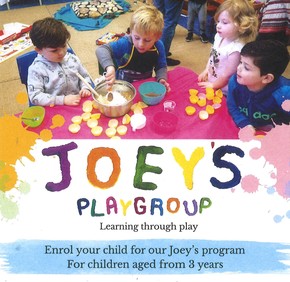Lots of kids have times when they don’t feel like going to school, but for some children the idea of going to school can make them extremely upset and this distress doesn’t go away. When the problem persists and leads to regular absences from school, this is called ‘school refusal’. Find out more about school refusal, and what you can do to help.
What is school refusal?
School refusal refers to extreme emotional distress that some children experience about going to school. If left unaddressed, it can lead to frequent absences from school.
Signs of school refusal in children can include:
- Tearfulness or tantrums before school
- Begging or pleading to stay at home
- Refusing to leave the house in the morning or to get out of the car at school
- Complaining of illness before school, such as nausea, dizziness, headaches, stomach aches or fatigue
- Frequent visits to the sick bay or school nurse during school hours
School refusal can be caused by many different things, such as separation anxiety, social anxiety, academic difficulties, periods of transition (such as moving house or starting at a new school), traumatic events (such as serious illness of a family member) or conflict with other students or teachers. School refusal behaviours can often be worse after the weekend, the holidays, or a period of being away from school.
Children beginning school and those transitioning from primary school to high school are most likely to experience school refusal. However, school refusal can occur in children at any age.
What can you do to help?
School refusal can be very stressful for both you and your child but there are some practical steps you can take to address their anxiety and encourage your child to go to school.
It is easier and more effective to deal with school refusal behaviour early on. The longer the child remains away from school, the more difficult it will be for them to feel comfortable about returning to school. If your child is showing any signs of school refusal, here are some ideas to help get them into a happy routine of going to school each morning.
Talk with your child.
If your child is refusing to go to school, talk to them about what they are thinking and feeling – and let them know you understand what they are going through. For example, you could say something like, ‘I can see that you are feeling worried about going to school. It’s hard to do things that you think are scary, but I know you can be brave. Your teacher and I can help too. What it is about school that you find scary?’ Once you have identified the cause of their anxiety you can work with your child and their teacher to help them feel safe and comfortable at school.
Talk to their teacher.
When dealing with school refusal behaviour it is important to talk to your child’s teacher, so that they are aware of the problem. The teacher can provide ideas and advice and work with you and your child to manage your child’s anxiety at school. They may also refer you and your child to other support services such as a student welfare coordinator or counsellor.
Keep calm and carry on!
Managing school refusal can be stressful but try to stay calm. If your child sees that you’re worried, stressed or frustrated, it can make them feel more anxious. Try to establish a calm start to the day by having a consistent morning routine that you stick to each school day. This will help your child to feel more secure when they are getting ready for school.
Make your expectations clear.
Try to use language that makes it clear that you expect your child to go to school every day. For example, rather than saying ‘If you go to school tomorrow, we can go to the playground in the afternoon,’ try saying, ‘After you go to school tomorrow, we can go to the playground in the afternoon.’
Make staying at home boring.
School refusal behaviour can be encouraged if children are ‘rewarded’ with fun activities when they stay at home. If your child is refusing to go to school, try to make staying at home a ‘boring’ alternative – for example, don’t let them play with their favourite toys or electronic devices, and try not to give them treats or organise special activities. This will show your child that there is no ‘benefit’ in staying at home instead of going to school.
Try having someone else drop your child at school.
If possible, try to arrange for someone else to take your child to school in the morning. It can be easier for children to say goodbye to you at home rather than at the school gate. Alternatively, you can try giving a friend of your child’s a lift to school so they can go in together. Having a friend with them as they go to school can help your child feel supported and reduce their anxiety.
Offer rewards.
If your child is really struggling with school refusal, try offering them a reward for going to school! For example, you could reward your child with a play at the park on the way home from if they made it through a whole day at school. Or you could let them choose what to have for dinner on Friday night if they have gone to school every day all week.
Ease them back in to school.
If your child has had an extended period of time off school because of school refusal, try to ease them back into it. Talk to your child’s teacher about a plan to gradually build up your child’s attendance at school – for example, they might start attending just for the morning, or for their favourite subjects, to help them adjust back into the school setting.
|








